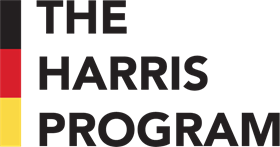Harris Advisory Board
All aspects of the chair, including the approval of nominations, are overseen by the Program's Harris Advisory Board, which consists of equal numbers of representatives from Dartmouth College and German academicians. The Board meets every other year, otherwise conducting its business digitally.
It is chaired by Viktor Witkowski, Director of the Harris Program. The other Dartmouth representatives are Gerd Gemunden, and Veronika Fuechtner. On the German side are Johannes Glückler, and Barbara Göbel.
CURRENT Harris Advisory Board Members
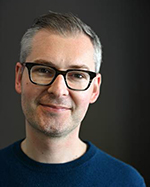 Viktor Witkowski is a Lecturer in Studio Art at Dartmouth and he is the current Director of the Harris German Distinguished Visiting Professorship Program. Viktor moved to the Upper Valley in 2012 and has been working at Dartmouth since 2015.
Viktor Witkowski is a Lecturer in Studio Art at Dartmouth and he is the current Director of the Harris German Distinguished Visiting Professorship Program. Viktor moved to the Upper Valley in 2012 and has been working at Dartmouth since 2015.
Viktor earned a combined Master's Degree in Art Education, Art History and Studio Art from the Hochschule für Bildende Künste Braunschweig and a degree in American Studies, Didactics and Philosophy at the Technische Universität Braunschweig, Germany in 2006. In 2010, he graduated with an MFA in Visual Arts from Rutgers University.
Viktor Witkowski is also a painter and filmmaker who focuses on representations of history, regional as well as global conflicts and the impact these have on the individual. His work addresses the possibilities of painting and film in the face of unsettling, yet socially relevant topics. His paintings and films have been shown across the US, Germany, the UK, France, and Poland.
As the Director of the Harris German Distinguished Visiting Professorship Program, Viktor Witkowski intends to honor the program's original mission to bring Germans from any academic, artistic and public field to Dartmouth. As a German himself, who benefitted from an academic education in the US early in his career, he values the Harris program's impact on Dartmouth's community and the opportunities it offers to visiting Germans.
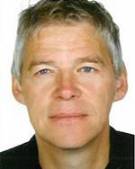 Gerd Gemünden is the Sherman Fairchild Professor of the Humanities, and Professor of German Studies, Film and Media Studies, and Comparative Literature. He currently serves as Chair of the Program in Comparative Literature.
Gerd Gemünden is the Sherman Fairchild Professor of the Humanities, and Professor of German Studies, Film and Media Studies, and Comparative Literature. He currently serves as Chair of the Program in Comparative Literature.
He studied German, English and Philosophy at the University of Tübingen and Comparative Literature at the University of Oregon (Ph.D. 1988). His specialties include critical theory and cultural studies, the history and theory of German cinema, global art cinema, an the study of exile, migration and diaspora.
Gerd Gemünden has long been interacting with guests of the Harris Professorship at Dartmouth, be it through the Department of German Studies, Film and Media Studies, and the Comparative Literature Program, and he has witnessed first-hand how rewarding these visits have been for the students, faculty, and all others in the Dartmouth community. He is looking forward to having a more active role in the Harris Program.
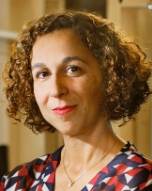 Veronika Fuechtner is Interim Chair of Jewish Studies and Associate Professor of German Studies at Dartmouth. In addition, she frequently holds an appointment as Adjunct Associate Professor in the department of medical education at the Geisel School of Medicine. She also teaches in Comparative Literature, Jewish Studies, and Women's and Gender Studies. She is the author of Berlin Psychoanalytic (University of California Press, 2011) and the co-editor of Imagining Germany, Imagining Asia (with Mary Rhiel, Camden House, 2013) and A Global History of Sexual Science 1880-1960 (with Douglas E. Haynes and Ryan Jones, University of California Press, 2017). She is completing a monograph on Thomas Mann's Brazilian mother and Mann's construction of race and "Germanness." Her research interests include the history of psychoanalysis and sexology, the relationship between science and culture, discourses on race and ethnicity, German-language modernism, contemporary culture, German-language film, and global cultural and scientific histories. She has received research grants from the American Council of Learned Societies, the American Psychoanalytic Association, the Deutsche Schillergesellschaft, the Max Planck Institute for the History of Science, the National Endowment for the Humanities and the Social Sciences Research Council. She has served on the national steering committee of Women in German and currently serves on the 20th and 21st LCC forum executive committee of the MLA. In spring 2020 she was the Anna-Maria Kellen Fellow at the American Academy in Berlin, and for the academic year 2020/21 she was a fellow at Wellesley's Newhouse Center for the Humanities.
Veronika Fuechtner is Interim Chair of Jewish Studies and Associate Professor of German Studies at Dartmouth. In addition, she frequently holds an appointment as Adjunct Associate Professor in the department of medical education at the Geisel School of Medicine. She also teaches in Comparative Literature, Jewish Studies, and Women's and Gender Studies. She is the author of Berlin Psychoanalytic (University of California Press, 2011) and the co-editor of Imagining Germany, Imagining Asia (with Mary Rhiel, Camden House, 2013) and A Global History of Sexual Science 1880-1960 (with Douglas E. Haynes and Ryan Jones, University of California Press, 2017). She is completing a monograph on Thomas Mann's Brazilian mother and Mann's construction of race and "Germanness." Her research interests include the history of psychoanalysis and sexology, the relationship between science and culture, discourses on race and ethnicity, German-language modernism, contemporary culture, German-language film, and global cultural and scientific histories. She has received research grants from the American Council of Learned Societies, the American Psychoanalytic Association, the Deutsche Schillergesellschaft, the Max Planck Institute for the History of Science, the National Endowment for the Humanities and the Social Sciences Research Council. She has served on the national steering committee of Women in German and currently serves on the 20th and 21st LCC forum executive committee of the MLA. In spring 2020 she was the Anna-Maria Kellen Fellow at the American Academy in Berlin, and for the academic year 2020/21 she was a fellow at Wellesley's Newhouse Center for the Humanities.
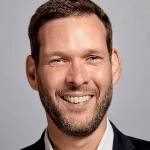 Johannes Glückler is the chair professor of Economic Geographies of the Future and Head of the Economic Geography Group at LMU Munich. His research focuses on the geography of knowledge, including the networks, institutions, and governance of innovation processes within and across regions and organizations. He also contributes to the understanding of the economic importance of cultural and educational institutions with regional economic impact analyses.
Johannes Glückler is the chair professor of Economic Geographies of the Future and Head of the Economic Geography Group at LMU Munich. His research focuses on the geography of knowledge, including the networks, institutions, and governance of innovation processes within and across regions and organizations. He also contributes to the understanding of the economic importance of cultural and educational institutions with regional economic impact analyses.
After studying geography, psychology, and sociology at the Universities of Würzburg, Salamanca, and the London School of Economics, he earned his doctorate at the University of Frankfurt. He was appointed a Professor of Economic Geography at the Catholic University of Eichstätt-Ingolstadt (2006-2008), before he became the Chair Professor of Economic and Social Geography at Heidelberg University (2008-2023), where he was Senator, Faculty Dean, Institute Director, and Fellow of the Marsilius Center for Advanced Studies. In addition to numerous international visiting professorships, including in Canada, Spain, Ecuador, Argentina, and Chile, he was most recently Distinguished Harris Visiting Professor at Dartmouth College, USA.
Johannes Glückler is an elected member of the Academia Europaea, of the Advisory Board of the Harris Program at Dartmouth College (USA), a founding member and board member of the German Society for Network Research (DGNet) and he was Chairman of the Advisory Board of the Leibniz Institute for Spatial Social Research in Berlin/Erkner. He is also editor of the renowned Springer book series Knowledge & Space and co-founder of the international Master's program Governance of Risks and Resources at the Heidelberg Center for Latin America in Santiago de Chile. Johannes Glückler is also a member of the scientific committees of the Global Conference on Economic Geography, the Sunbelt Conference on Social Network Analysis and the first international conference on economic geography 2024 of the Asociación Española de Geografía (AGE).In addition to basic research, he advises the OECD, federal, state and local authorities as well as business associations, companies and civil society organizations on issues of innovation, regional development and politics.
 Barbara Göbel is Director of the Ibero-Amerikanisches Institut in Berlin (Stiftung Preußischer Kulturbesitz), a non-university research institute that hosts one of the largest libraries on Latin America in the world. Since 2017 she is Honorary Professor at the Freie Universität Berlin. Barbara Göbel studied social anthropology, prehistory, economic and social history at the Universities of Munich and Göttingen (Germany), holding a Ph.D. (1990) from the latter. Barbara Göbel has been a Lecturer and Senior Researcher at the Universities of Göttingen, Tübingen, StuttgartHohenheim, Cologne, and Bonn (Germany) and Visiting Professor at several universities in Argentina (Universities of Buenos Aires, Córdoba, Jujuy, San Martín, La Pampa), Bolivia (University of La Paz), Chile (Universities of Antofagasta and Arica) and Peru (PUCP, Lima). She has also worked at the Laboratoire d’ Anthropologie Sociale (Collège de France) in Paris (France). Between 2002 and 2005 Barbara Göbel was the Executive Director of the International Human Dimensions Programme on Global Environmental Change (IHDP), co-sponsored by ICSU and ISSC, now International Science Council. Her main research interests are socio-environmental inequalities and resource conflicts in Latin America; geopolitics of knowledge. She is member of several advisory boards of funding agencies, scientific and cultural institutions and scientific journals (e.g. board of German Chancellor Fellowhips of the Alexander von Humboldt Foundation, Latin American Board of the Research Council Norway).
Barbara Göbel is Director of the Ibero-Amerikanisches Institut in Berlin (Stiftung Preußischer Kulturbesitz), a non-university research institute that hosts one of the largest libraries on Latin America in the world. Since 2017 she is Honorary Professor at the Freie Universität Berlin. Barbara Göbel studied social anthropology, prehistory, economic and social history at the Universities of Munich and Göttingen (Germany), holding a Ph.D. (1990) from the latter. Barbara Göbel has been a Lecturer and Senior Researcher at the Universities of Göttingen, Tübingen, StuttgartHohenheim, Cologne, and Bonn (Germany) and Visiting Professor at several universities in Argentina (Universities of Buenos Aires, Córdoba, Jujuy, San Martín, La Pampa), Bolivia (University of La Paz), Chile (Universities of Antofagasta and Arica) and Peru (PUCP, Lima). She has also worked at the Laboratoire d’ Anthropologie Sociale (Collège de France) in Paris (France). Between 2002 and 2005 Barbara Göbel was the Executive Director of the International Human Dimensions Programme on Global Environmental Change (IHDP), co-sponsored by ICSU and ISSC, now International Science Council. Her main research interests are socio-environmental inequalities and resource conflicts in Latin America; geopolitics of knowledge. She is member of several advisory boards of funding agencies, scientific and cultural institutions and scientific journals (e.g. board of German Chancellor Fellowhips of the Alexander von Humboldt Foundation, Latin American Board of the Research Council Norway).
Past Harris Advisory Board Members
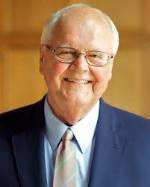 James Wright was the founder of the Harris Program. He chaired the Harris Advisory Board from the very beginning, until 1997, over ten years. James was President Emeritus and Eleazar Wheelock Professor of History at Dartmouth College. The 16th President in the Wheelock Succession, he served as president from 1998 until June 2009. A member of the Dartmouth faculty since 1969, Wright also served as Dean of the Faculty from 1989-97 and as Acting President of the College during the first six months of 1995, while President James O. Freedman was on sabbatical. He served as Provost from 1997-98 and was elected president in April 1998.
James Wright was the founder of the Harris Program. He chaired the Harris Advisory Board from the very beginning, until 1997, over ten years. James was President Emeritus and Eleazar Wheelock Professor of History at Dartmouth College. The 16th President in the Wheelock Succession, he served as president from 1998 until June 2009. A member of the Dartmouth faculty since 1969, Wright also served as Dean of the Faculty from 1989-97 and as Acting President of the College during the first six months of 1995, while President James O. Freedman was on sabbatical. He served as Provost from 1997-98 and was elected president in April 1998.
James Wright received a bachelor's degree from Wisconsin State University-Platteville and a masters and doctoral degree in history from the University of Wisconsin at Madison., a Guggenheim Fellowship, and a Charles Warren Fellowship at Harvard.
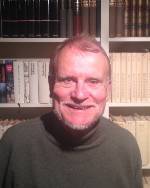 Konrad Kenkel, Associate Professor of German emeritus, studied German Literature and History in his native Hamburg and received his Ph.D. from Indiana University in 1975.
Konrad Kenkel, Associate Professor of German emeritus, studied German Literature and History in his native Hamburg and received his Ph.D. from Indiana University in 1975.
Konrad was a vital member of the Harris Advisory Board for many years. His loyalty, tenacity and dedication to the Harris Program has helped to make it into what many people consider to be the gold star program it is today.
His specialties include literature and art from the turn of the century through the Weimar Republic. In addition to individual studies of Gryphius, Hofmannsthal, Gustav Mahler, and various postwar German authors, he has published a comparative study of the treatment of myth: "Medea-Dramen: Entmythisierung und Remythisierung: Euripides, Klinger, Grillparzer, Jahnn, Anouilh" (1979).
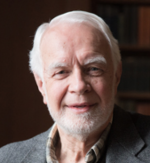 Bruce Duncan retired in 2015 after forty-six years of teaching German Studies at Dartmouth. He studied at Williams College, the University of Munich, and the Free University of Berlin and received his Ph.D. from Cornell University in 1969. Chair of German Studies at various times, including from 1980-89, he also served as Associate Dean for the Humanities from 1989-93 and for 18 months as Acting Director of the Hopkins Center for the Performing Arts. He frequently directed Dartmouth's study abroad programs in Mainz and Berlin.
Bruce Duncan retired in 2015 after forty-six years of teaching German Studies at Dartmouth. He studied at Williams College, the University of Munich, and the Free University of Berlin and received his Ph.D. from Cornell University in 1969. Chair of German Studies at various times, including from 1980-89, he also served as Associate Dean for the Humanities from 1989-93 and for 18 months as Acting Director of the Hopkins Center for the Performing Arts. He frequently directed Dartmouth's study abroad programs in Mainz and Berlin.
His teaching included beginning to advanced German language instruction and studies of literary works ranging from medieval epics to modern novels and dramas. His publications encompass translations, a variety of studies on German literature and intellectual history in the 18th and early 19th centuries, and considerations of language pedagogy. Since 1970 he has developed programs for computer-assisted teaching and learning, the current ones being an online Review of German Grammar and two apps: annotext, which aids students in reading German literary texts, and DartDrill, an interactive drill program.
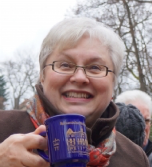 Jane Carroll was a Senior Lecturer in Art History and an Assistant Dean in the office of the Dean of the Faculty. She was the Director of the Harris German Distinguished Visiting Professorship Program until her retirement in July of 2019. Jane was at Dartmouth for over twenty-five years.
Jane Carroll was a Senior Lecturer in Art History and an Assistant Dean in the office of the Dean of the Faculty. She was the Director of the Harris German Distinguished Visiting Professorship Program until her retirement in July of 2019. Jane was at Dartmouth for over twenty-five years.
She studied art history and German at Smith College (BA), spending her junior year at the University of Hamburg. Her studies continued at the University of North Carolina, Chapel Hill (Ph.D.) where she studied art history. Since that time, she has researched on art created by fifteenth-century Dominican nuns, art used in the service of the Catholic cause during the Reformation, political imagery of the early sixteenth century, and tapestries made in late medieval Strasbourg. She teaches courses on the arts in northern Europe that span 700-1560.
Among her publications are "Woven Devotions: Reform and Piety in the Tapestries Done by Dominican Nuns," in Saints, Sinners and Sisters, which she edited with Alison Stewart (2003), "Subversive Obedience. Images of Spiritual Reform by and for Fifteenth-century Nuns," in Reassessing Women's Roles as "Makers" of Medieval Art and Architecture," edited by Therese Martin (2012), "Die Jagd nach der Treue, or When Desire met Devotion," in In Dog We Trust: Dogs in Medieval and Early Modern Society, edited by Laura Gelfand (2016), and "Addressing Power. 1507-1509 and Burgundian Politics," in Festschrift for Jeffrey Chipps Smith, edited by Catharine Ingersoll (2018).
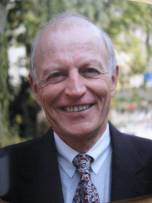 Dieter Mahncke served as a Harris Advisory Board Member from 1995 through 2009 when he retired. He then nominated Stefan Fröhlich as his successor. During his time on the Harris Board, he nominated many well-known German professors for the Harris professorship. The engraving which he received from the Board when he retired now hangs on the wall next to his desk, a picture of the Dartmouth green with all its buildings, the library in the middle. It reminds him of many wonderful memories and good times spent at Dartmouth.
Dieter Mahncke served as a Harris Advisory Board Member from 1995 through 2009 when he retired. He then nominated Stefan Fröhlich as his successor. During his time on the Harris Board, he nominated many well-known German professors for the Harris professorship. The engraving which he received from the Board when he retired now hangs on the wall next to his desk, a picture of the Dartmouth green with all its buildings, the library in the middle. It reminds him of many wonderful memories and good times spent at Dartmouth.
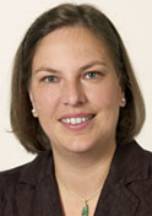 Ulrike Wegst studied physics at the University of Göttingen in Germany and received her PhD in engineering from the University of Cambridge in 1997 for analysis of the mechanical performance of natural materials. She worked on the CES Eco-Selector software before moving to the Institute National Polytechnique de Grenoble in France in 2000 and to the Max Planck Institute for Metals Research in Stuttgart, Germany in 2001. She has been a faculty guest scientist at the Lawrence Berkeley National Laboratory and the Anne Stevens Assistant Professor at Drexel University. Professor Wegst joined the faculty at Dartmouth in January 2012.
Ulrike Wegst studied physics at the University of Göttingen in Germany and received her PhD in engineering from the University of Cambridge in 1997 for analysis of the mechanical performance of natural materials. She worked on the CES Eco-Selector software before moving to the Institute National Polytechnique de Grenoble in France in 2000 and to the Max Planck Institute for Metals Research in Stuttgart, Germany in 2001. She has been a faculty guest scientist at the Lawrence Berkeley National Laboratory and the Anne Stevens Assistant Professor at Drexel University. Professor Wegst joined the faculty at Dartmouth in January 2012.
Her research interests are mechanical performance of natural materials; biomaterials and tissue engineering; self-assembly; bio-templated materials; biomimetics; novel materials for nuclear fuel applications; multifunctional hybrid materials; materials selection and eco-design; eco-audits; materials in musical instruments and sports equipment; science education through interdisciplinary projects linking music, arts and sport.
 Peter Montforts was Full Professor of Organic Chemistry at the University of Bremen from 1986 to 2015. At the present he is Professor Emeritus at this institution. Franz-Peter Montforts earned his Diploma degree in Chemistry from the Wilhelms-University of Muenster (Westphalia) in 1971.
Peter Montforts was Full Professor of Organic Chemistry at the University of Bremen from 1986 to 2015. At the present he is Professor Emeritus at this institution. Franz-Peter Montforts earned his Diploma degree in Chemistry from the Wilhelms-University of Muenster (Westphalia) in 1971.
Franz-Peter Montforts´ research is in the field on Natural Product Chemistry with a special focus on partial and total synthesis of novel tetrapyrroles. These types of products play important roles in biochemical processes concerned with respiration and photosynthesis.
His special relationship to Dartmouth College originates from a visiting professorship in the Department of Chemistry during winter term 1994. Since then Franz-Peter Montforts visited Dartmouth´Chemical Department several times. Four of his former PhD students worked as postdoctoral fellows in the Organic Chemistry laboratories of the Chemistry Department. In 2008 and 2012 he became William P. and Dewilda N. Harris German/Dartmouth Distinguished Visiting Professor and since 2012 he is member of the Dartmouth/German Harris Advisory Board.
 Stefan Fröhlich is Professor for International Politics and Political Economy at the University of Erlangen-Nuremberg and currently Guest professor at the College of Europe (Brugge and Natolin), the Universities of Oxford, Bonn and Zurich. studied Political Science, Economics, American and Spanish literature in Bonn, Paris and Washington (MA 1985; Ph. D. 1989; “Habilitation” (Dr.phil.habil) 1996).
Stefan Fröhlich is Professor for International Politics and Political Economy at the University of Erlangen-Nuremberg and currently Guest professor at the College of Europe (Brugge and Natolin), the Universities of Oxford, Bonn and Zurich. studied Political Science, Economics, American and Spanish literature in Bonn, Paris and Washington (MA 1985; Ph. D. 1989; “Habilitation” (Dr.phil.habil) 1996).
Stefan Fröhlich is author of numerous books and more than 200 articles, among them: Das Ende der Selbstfesselung: Deutsche Außenpolitik in einer Welt ohne Führung (2019), The changing East Asian Security Architecture (2017); Suspicious minds: US-German Relations in the Trump Era, Washington 2017 (co-author); Die EU als globaler Akteur, 2nd ed., Wiesbaden 2014; The new Geopolitics of Transatlantic Relations. Coordinated Responses to Common Dangers, Washington 2012. He is a frequently asked commentator for German and international media.
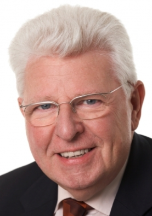 Heinrich Oberreuter is a German political scientist. Oberreuter studied political science, history, communication science and sociology at the Ludwig Maximilians University in Munich. From 1968 to 1978 he was a research assistant at the Geschwister-Scholl Institute at the University of Munich, from 1970 he was also a research assistant at the German Bundestag. In 1978 he changed to the Otto Suhr Institute at the Free University of Berlin, and from 1980 to 2010 he held a chair in political science at the University of Passau. In 1987 Oberreuter was a visiting professor at Dartmouth College in Hanover, New Hampshire, USA, hence his connection to the Harris Program.
Heinrich Oberreuter is a German political scientist. Oberreuter studied political science, history, communication science and sociology at the Ludwig Maximilians University in Munich. From 1968 to 1978 he was a research assistant at the Geschwister-Scholl Institute at the University of Munich, from 1970 he was also a research assistant at the German Bundestag. In 1978 he changed to the Otto Suhr Institute at the Free University of Berlin, and from 1980 to 2010 he held a chair in political science at the University of Passau. In 1987 Oberreuter was a visiting professor at Dartmouth College in Hanover, New Hampshire, USA, hence his connection to the Harris Program.
In 1991 Oberreuter was appointed by the Saxon Minister of Science to the founding dean for humanities and social sciences at the Technical University of Dresden. On November 1, 1993, he became director of the Academy for Political Education in Tutzing. He was in charge of this facility until October 31, 2011. He is still active as the 2nd chairman of the Academy's support group.

